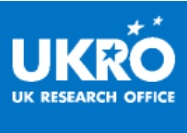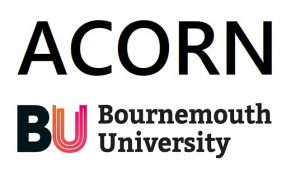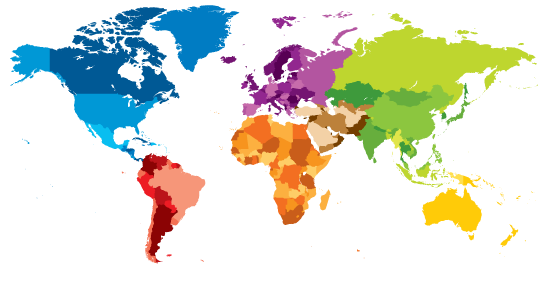
We are pleased to announce that the Research Impact Fund is now open for applications.
This call is for researchers at all stages of their careers to support the planning and development of impact from new or ongoing research. For 2021/22, the fund has been split into two strands:
Strand 1: To support the development of new research partnerships and networks, to lay the groundwork for future research projects.
Strand 2: To provide support for emerging impact from existing underpinning research.
Who can apply?
Strand 1 is aimed at early career researchers (those who are within 7 years of completing their doctorate, or equivalent experience, and are not associate professors / professors) and staff who are new to research (academic staff who have not published an academic output, or received internal or external funding for research). The funding aims to support colleagues to engage with key stakeholders at the very beginning of the research process, to establish partnerships and networks to support the co-creation of research questions. The panel would like to fund multiple projects and therefore particularly welcome applications for projects up to £2,000.
Strand 2 is aimed at academic staff with existing research which has the potential for impact, or is starting to result in impact. The funding aims to support the development of research impact across BU and begin to identify potential case studies for post-REF2021 exercises. The panel would like to fund multiple projects and therefore particularly welcome applications for projects up to £4,000.
What we’re looking for
Applicants need to demonstrate a clear understanding of how their research – whether proposed or existing – can lead to impact. The UKRI defines research impact as “an effect on, change or benefit to the economy, society, culture, public policy or services, health, the environment or quality of life, beyond academia”.
For strand 1, the emphasis is on establishing and developing relationships with partners, organisations and research users that will lead to impact in the future. This may involve:
- Collaborating with partners to apply for external funding
- The co-creation of research questions
- Building relationships with policymakers and policy brokers
- Creating a stakeholder advisory group to suggest additional activities for achieving impact, as well as reviewing and providing feedback on proposed activities.
With strand 2, the focus is on maximising the potential of existing research by identifying activities that will translate outputs into impact/s.
This may include, but is not limited to:
- Developing printed and digital resources
- Collating further data sets
- Creating briefings and information leaflets for policymakers
- Updating and developing websites to disseminate findings and encourage/monitor use
- Identifying additional potential beneficiaries and stakeholders
- Undertaking media activity to raise awareness, change opinions or attitudes, mobilise action or influence decisions by people with power.
- Creating new methods of engagement with the research findings, e.g., video, podcasts, apps etc.
- Developing associated educational resources based on insights.
Application process
To apply, please first read the policy and guidance notes. Then submit the relevant online form. PDF versions are supplied so that you may preview the form, but must not be submitted:
Strand 1 application form
Strand 1 application form pdf version
Strand 2 application form
Strand 2 application form PDF version
Applications must be submitted by Friday 10th December.
If you have any questions about your application, please email Amanda Edwards.
Applicants are strongly advised to attend the surgery session on applying for internal funding for impact and public engagement on Thursday 18 November and / or book a 1-2-1 session with an Impact Advisor. Find out more about the surgery and book a place here.
BU’s Research Principles
Putting the Research Impact Fund into strategic context, under BU2025, the following funding panels operate to prioritise applications for funding and make recommendations to the Research Performance and Management Committee (RPMC).
There are eight funding panels:
- HEIF Funding Panel
- GCRF Funding Panel
- Research Impact Funding Panel
- Doctoral Studentship Funding Panel
- ACORN Funding Panel
- Research Fellowships Funding Panel
- Charity Support Funding Panel
- SIA Funding panel
Please see further announcements regarding each initiative.
These panels align with the BU2025 focus on research, including BU’s Research Principles. Specifically, but not exclusively, regarding the Research Impact Funding Panel, please refer to:
- Principle 5 – which sets of the context for such funding panels,
- Principle 6 and Outcome 9 – which recognises the need for interdisciplinarity and the importance of social science and humanities (SSH).



 Every BU academic has a
Every BU academic has a  By clicking on this box, on the left of the Research Blog home page just under the text ‘Funding Opportunities‘, you access a
By clicking on this box, on the left of the Research Blog home page just under the text ‘Funding Opportunities‘, you access a  RDS have already started supporting BU academics submitting applications to this call.
RDS have already started supporting BU academics submitting applications to this call. The UK Research Office (UKRO), in its capacity as UK National Contact Point for the Horizon Europe Marie Skłodowska-Curie Actions (MSCA), were holding information webinars to support potential applicants applying for the 2021 MSCA SE call. After login to
The UK Research Office (UKRO), in its capacity as UK National Contact Point for the Horizon Europe Marie Skłodowska-Curie Actions (MSCA), were holding information webinars to support potential applicants applying for the 2021 MSCA SE call. After login to 
 ACORN funding provides central investment to the most talented Early Career Researchers (ECRs) to support them in gaining experience in managing and leading their own pilot research projects. The name ACORN stands for ACceleration Of Research and Networking. These awards support BU’s commitment to the
ACORN funding provides central investment to the most talented Early Career Researchers (ECRs) to support them in gaining experience in managing and leading their own pilot research projects. The name ACORN stands for ACceleration Of Research and Networking. These awards support BU’s commitment to the 
 Round 4
Round 4 We are pleased to announce the first call for our new funding stream for public engagement with research
We are pleased to announce the first call for our new funding stream for public engagement with research
 This round slightly differs from previous rounds. Two options for ECRs are available – Standard Grants up to £5,000 that can be delivered before the end of July 2022 and Large Grants up to £10,00 for projects to be completed within 12 months. For more details, refer to the
This round slightly differs from previous rounds. Two options for ECRs are available – Standard Grants up to £5,000 that can be delivered before the end of July 2022 and Large Grants up to £10,00 for projects to be completed within 12 months. For more details, refer to the  Following links, you can find ACORN
Following links, you can find ACORN 


 This year’s RKEDF programme of training for public engagement with research begins next week with an introduction for anyone new to PER.
This year’s RKEDF programme of training for public engagement with research begins next week with an introduction for anyone new to PER. Join the PER network at BU
Join the PER network at BU










 New CMWH paper on maternity care
New CMWH paper on maternity care From Sustainable Research to Sustainable Research Lives: Reflections from the SPROUT Network Event
From Sustainable Research to Sustainable Research Lives: Reflections from the SPROUT Network Event REF Code of Practice consultation is open!
REF Code of Practice consultation is open! ECR Funding Open Call: Research Culture & Community Grant – Apply now
ECR Funding Open Call: Research Culture & Community Grant – Apply now ECR Funding Open Call: Research Culture & Community Grant – Application Deadline Friday 12 December
ECR Funding Open Call: Research Culture & Community Grant – Application Deadline Friday 12 December MSCA Postdoctoral Fellowships 2025 Call
MSCA Postdoctoral Fellowships 2025 Call ERC Advanced Grant 2025 Webinar
ERC Advanced Grant 2025 Webinar Update on UKRO services
Update on UKRO services European research project exploring use of ‘virtual twins’ to better manage metabolic associated fatty liver disease
European research project exploring use of ‘virtual twins’ to better manage metabolic associated fatty liver disease